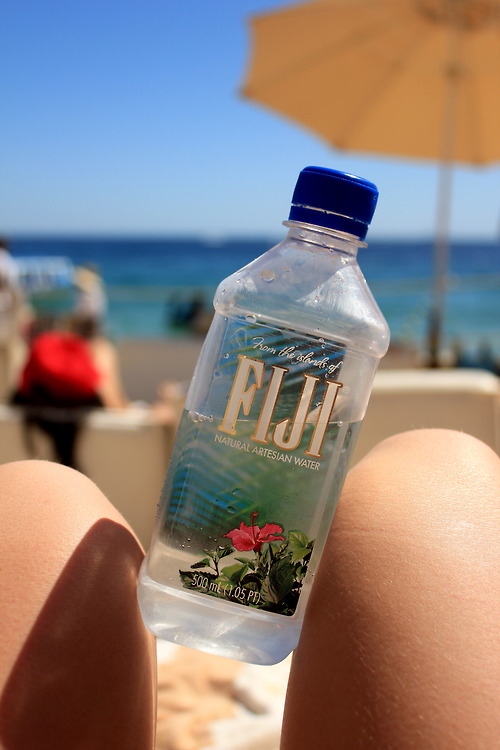Tagged: capitalism
The Plastic Capitalism of Fiji Water
Mohammed Altaff, owner of Aqua Pacific water, said:
It’s just like branding a water ‘America Water’ and denying anyone else the right to use the name ‘America.’
When Fiji Water decided to seize the word “Fiji” for its brand, the word became off bounds for everyone else.
Anna Lenzer’s article about Fiji Water unveils the corruption, ruthless business practices and ironies behind the brand.
Beginning with a delayed lead that captures police and governmental corruption in her article, Lenzer gives a first person account to authorities’ behavior in Fiji.
Local authorities took her to a police station without a valid reason —she had been sending emails about foreign journalists being kicked off the island— and asked her to disclose her findings.
As one of the policemen threatened,
I’d hate to see a young lady like you go into a jail full of men,” he averred, smiling grimly. “You know what happened to women during the 2000 coup, don’t you?
AN UPSIDE DOWN WORLD
From Paris Hilton to President Barack Obama, celebrities drink Fiji Water. Launched in 1995 by David Gilmour, the brand dominates today’s water market.
In today’s sea of water bottle choices, trendsetters, prominent public figures and media outlets —The Huffington Post, for instance— hail the company as trendy and environmentally friendly. Starting in 2008, the company said they would plan to go carbon negative by offsetting 120 percent of production emissions via conservation and energy projects.
Yet, how do they plan to accomplish this, if their production seldom stops?
The company labels, blows, shrink-wraps and fills water bottles 24 hours a day, five days a week. Having a 99-year lease on land atop a 17-mile long aquifer in Vita Levu, an island located in the north coast of Fiji, Fiji Water has enough water resources to reach the world’s four corners with no difficulty.
Their motto to save the environment is the ultimate irony. As Lenzer writes,
‘Fiji Green’ urges consumers to drink imported water to fight climate change.
If production increases every day, how can imported water fight climate change? The reach of Fiji’s geometrically appealing plastic wonders seems endless. The company exports and makes millions by selling the water of Fiji’s aquifers while native populations in the island suffer from a lack of potable water. Shouldn’t the people of Fiji have a legitimate claim over their own territory and resources?
Ultimately, Fiji Water has established a symbiotic coexistence with Fiji’s government, yet the asymmetrical relationship affects Fijians, since the company does not go all-in when it comes to securing the welfare of local community members.
Overall, this piece brings light to the obscure practices of Fiji Water, which dictates whichever terms they want and has the upper hand when negotiating with the government.
Incarnating the spirit of muckrakers of old, Lenzer managed to hit Fiji Water’s only frail point: their public image.
Now, who wants to say, “I want to be ‘in.’ Bring me a bottle of those cheerful bottles, please?”
Photo credit: Hurtiing.
